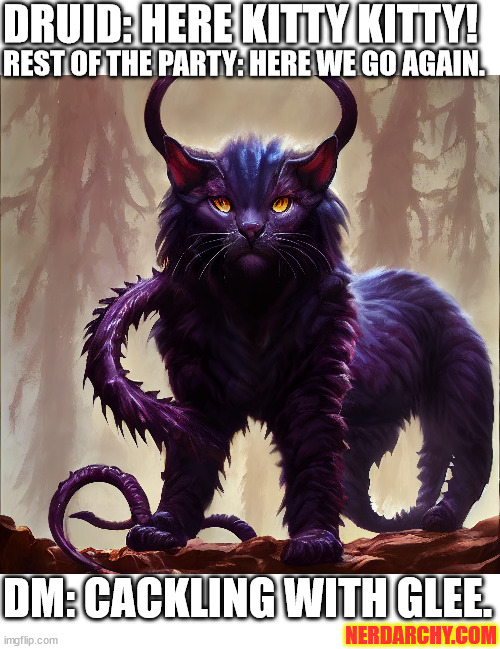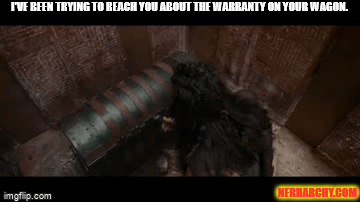
How To Set Up A Nerd Business & Launch It With A Bang
The convention calendar is packed, coding is a pressing priority in the education system, and the Marvel Cinematic Universe maintains its unrelenting assault on our wallets. If not quite at an end, the days of nerds being ostracized or considered lesser are certainly well past their middle — and where there’s cultural change, the business world will invariably follow. Today, the market for niche, nerdy business pursuits is bigger than ever before, bolstered by the community-building interest-sharing power of the internet. Unashamed to spend huge sums supporting their interests, proud nerds will readily welcome relevant new products and services with Fry-like fistfuls of cash. So if you’re looking to make money doing what you love (and who isn’t?), you can set up your own nerdy business and have a great chance of making it a huge success — but you need to do it the right way. Here’s how to set up a nerd business and launch it with a nuke-level bang.
Do a lot of research (and I mean a lot)
The nerd community may have become a lot more accessible in recent years, but it still features the kind of uncompromising attention-to-detail that can irrevocably sink the underprepared venture moments after it leaves the port. You’re not going to get away with winging it.
If you’re a committed nerd yourself, as is likely, then you’ll need to offer no less than you’d accept as a consumer. And if you’re not, and you’ve happened upon this piece in an effort to learn more about the nerd world before you target it, then consult your planned audience before you do anything else. Ask them what they’d want from the kind of business you’re proposing. Immerse yourself in the culture. If you don’t understand the people you’re selling to, you’ll never achieve the kind of success you’re hoping for.
This also means doing an in-depth search for other businesses doing similar things to what you’re planning. Survey the competition to get a quick boost in the right direction — what are they getting right? Where are they falling short? If you can one-up the dominant competition (and nerds certainly enjoy following competition) by offering a superior experience, then you can quickly start winning support.
Establish your brand identity
Enthusiast buyers tend to form personal attachments to the products they collect and the companies they buy from — they want to feel that the retailers they’re supporting share their interests and genuinely care about the industry. A history of being mocked for liking particular things has made them wary of having their passions cynically exploited by indifferent sellers only interested in profits.
To lay a solid foundation for the future, you’ll want to cut to the heart of what your business is going to be. That identity will then need to be reflected in the entirety of your launch material, spanning everything from your product or service descriptions to your communications with your target audience.
Be incredibly careful with this, because the nerd world still has gatekeeping, and you’ll be laughed out of town if you provide any cringeworthy efforts at imitating culture you don’t fully understand. If you haven’t seen a particular show, don’t claim you love it, because it won’t take long for someone to expose the lie.
Create your business website
Since the average business can’t get away without having a strong business presence, making a mark in the nerd market without a robust online setup is a non-starter. If you already achieve a decent level of traffic on your personal website or blog, you may be tempted to convert it to a store and thus benefit further from that traffic, but consider the following:
- UX is vital for ecommerce. The typical personal website has a bland layout that really doesn’t suit business purposes. You can make some alterations to accommodate the revised requirements, but you’ll likely end up with an awkward half-measure that will frustrate all the visitors. Make design a priority. No more half-measures.
- Not every CMS is viable for retail. Most basic sites run on WordPress, which can be extended for ecommerce through Woocommerce, but there are plenty of systems that just weren’t designed for business purposes. It’s typically faster and easier to build a fresh ecommerce store than to retrofit an old site with unsuitable architecture.
- Keeping ventures separate is preferable. Down the line, you may want to take the business in a different direction, or make sweeping site-wide changes. With a combination site, any major tweaks will affect everything — with distinct sites, you can update one without affecting the other.
Put a lot of thought into the style and copy of your business site, because these things are very important. Ideally, you’ll pack the site with rich detail that rewards the discerning reader and makes the site a worthwhile piece of content in itself. The more enjoyable it is to spend time on the site, the longer people will hang around, and the more likely they’ll be to spend money.
Build relationships with top influencers
People with niche interests are far more likely to go to individual experts than generic collectives for industry information and recommendations. In most cases, a top influencer in a community will have demonstrated their knowledge and dedication many times over, earning rock-solid trust from their followers.
Because of this, while general promotion can still be effective, the core of your setup and launch strategy should consist of forging relationships with relevant influencers. If your story captures their interest, they’ll want to talk about you to their followers, getting you a lot of meaningful publicity and making it vastly easier to grow.
Once you’ve launched your business, the discussion surrounding it will start to grow beyond your control. At this early stage, while you’re essentially trying to seed the concept, you have the power to shape how it’s perceived — so do everything you can!
Go live with something fun and gimmicky

CR 30 creatures find a way. Show your allegiance to the legendary beast with a Tarrasqic Park T-shirt, available for men and women in a variety of colors in the Nerdarchy store.
When you’re ready to get going (your business model is thought-out and everything is cleared for launch), you should come up with something unique and offbeat that can get you some attention. You’re not entering a bland corporate world, so you can take some risks — do something silly and obviously gimmicky that fits your niche.
After all, nerds like novelty and experimentation, and really appreciate doing something for the sheer joy of it. If you demonstrate right out of the gate that being in business isn’t going to hold you back from enjoying yourself, your audience will identify with you.
What should you do? Well, your imagination is the limit. For one example, if I were to start a nerdy business selling pop-culture-riffing T-shirts (a standard option), I could document my attempt to wear as many as possible at one time, and then trundle my shirt-heavy bulk through a low-budget obstacle course like some kind of fabric juggernaut. Shoot it for YouTube, make it a challenge series — exude maximum personality and you’ll surely gain some traction.
So there you have it: my recommendations for how you can set up a nerd business and quickly gain a foothold with your audience. I can’t give you any actual business ideas (or maybe I’m keeping them all for myself, I can’t confirm either way), but if you have the kernel of an idea, start doing your research — the opportunities are nearly boundless.
Like this?
Did you enjoy this post? Nerdarchy’s awesome volunteer staff of writers and editors do their best to create engaging, useful and fun content to share. If you like what you find here on our site, consider patronizing us in a good way through Patreon.
On top of reaching our goal of paying our writers, pledging gets you exclusive monthly content for your D&D game, opportunities to game with Nerdarchy, access to patron-only channels on our Discord and more.
With your generous support we’ll continue to create quality content between our YouTube channel and blog, invest in equipment to increase recording quality, and keep creating original publications and products to enhance your tabletop roleplaying and gaming experience.
Thank you for your consideration and as always, until next time stay nerdy!










No Comments